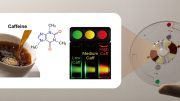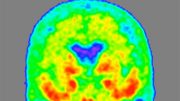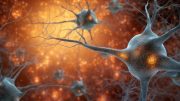
Recently published research suggests that compounds found in espresso may inhibit tau protein aggregation, a process associated with the onset of Alzheimer’s disease. The study discovered that increasing concentrations of espresso extract, caffeine, or genistein resulted in shorter tau protein fibrils and prevented the formation of larger sheets.
Recent in vitro research indicates that compounds in espresso could potentially inhibit tau protein aggregation, a process linked with Alzheimer’s disease. Preliminary findings showed that increased concentrations of espresso extract or certain compounds found in it led to the formation of shorter tau protein fibrils, possibly paving the way towards combating neurodegenerative diseases.
Whether enjoyed on its own or mixed into a latte, Americano, or even a martini, espresso provides an ultra-concentrated jolt of caffeine to coffee lovers. But it might do more than just wake you up. Research now published in the American Chemical Society’s Journal of Agricultural and Food Chemistry shows that, in preliminary in vitro laboratory tests, espresso compounds can inhibit tau protein aggregation — a process that is believed to be involved in the onset of Alzheimer’s disease.
Coffee Consumption and Neurodegenerative Diseases
Approximately half of all Americans drink coffee daily, with espresso being a popular way to enjoy it. To “pull” an espresso shot, hot water is forced through finely-ground coffee beans, creating a concentrated extract. This is often used as a base for other drinks, including cappuccino, caffè latte, mocha, macchiato, americano, and the trendy espresso martini.
Recent research has suggested that coffee could also have beneficial effects against certain neurodegenerative diseases, including Alzheimer’s disease. Although the exact mechanisms that cause these conditions are still unclear, the tau protein is believed to play a significant role.
The Role of Tau Protein in Alzheimer’s Disease
In healthy individuals, tau proteins help stabilize structures in the brain, but when certain diseases develop, the proteins can clump together into fibrils. Some researchers theorize that preventing this aggregation could alleviate symptoms. In light of this, a team led by Mariapina D’Onofrio embarked on an investigation to determine whether compounds in espresso could inhibit tau aggregation in vitro.
Insights from the Lab: Espresso’s Impact on Tau Aggregation
The researchers pulled espresso shots from store-bought beans, then analyzed their chemical makeup using nuclear magnetic resonance spectroscopy. They focused their further experiments on caffeine and trigonelline, both alkaloids, the flavonoid genistein, and theobromine, a compound also found in chocolate. These molecules, along with the complete espresso extract, were incubated alongside a shortened form of the tau protein for up to 40 hours.
Promising Results: Shorter Fibrils and Reduced Aggregation
As the concentration of espresso extract, caffeine, or genistein increased, fibrils were shorter and didn’t form larger sheets, with the complete extract showing the most dramatic results. Shortened fibrils were found to be non-toxic to cells, and they did not act as “seeds” for further aggregation. In other experiments, the researchers observed that caffeine and the espresso extract could both bind pre-formed tau fibrils.
Although much more research is needed, the team says that their preliminary in vitro findings could pave the way toward finding or designing other bioactive compounds against neurodegenerative diseases, including Alzheimer’s.
Reference: “Espresso Coffee Mitigates the Aggregation and Condensation of Alzheimer′s Associated Tau Protein” by Roberto Tira, Giovanna Viola, Carlo Giorgio Barracchia, Francesca Parolini, Francesca Munari, Stefano Capaldi, Michael Assfalg and Mariapina D’Onofrio, 19 July 2023, Journal of Agricultural and Food Chemistry.
DOI: 10.1021/acs.jafc.3c01072
The authors acknowledge funding from the Italian Ministry of University and Research.









I was told by one Dr that vitamin E would help prevent alzheimers. True or False